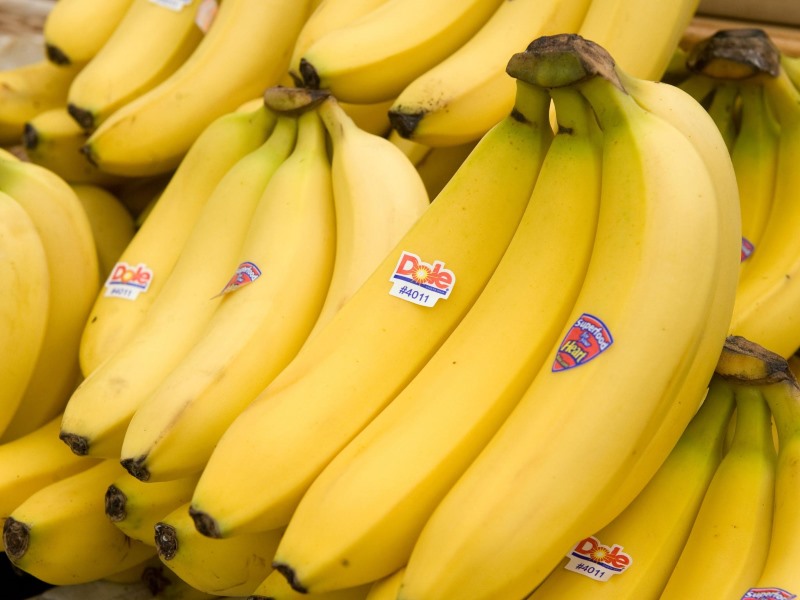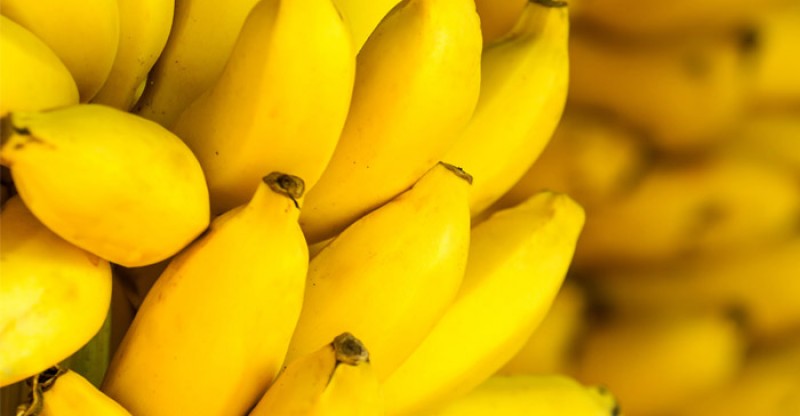Bananas: Nutritional Benefits, Calories & Health Advantages
The health benefits of bananas are extensive and scientifically supported, ranging from improved digestive health and enhanced cardiovascular function to better mental health and skin condition.
Bananas are a highly nutritious fruit, packed with essential vitamins and minerals like potassium, vitamin B6, and dietary fiber, all of which contribute to their wide array of health advantages.
Their relatively low glycemic index and high fiber content make them suitable for those managing diabetes and weight.
Additionally, natural sugars and carbohydrates in bananas provide an excellent source of energy, particularly beneficial for athletes and individuals seeking to enhance their physical performance.
How Many Calories Are in a Banana?
There are approximately 105 calories (kcal) in a medium-sized banana (118 grams).
Caloric content varies based on the banana’s size, variety, and ripeness, with medium bananas providing a moderate amount of energy suitable for most dietary needs.
According to data from the United States Department of Agriculture (USDA), bananas provide 27 grams of carbohydrates, 14 grams of natural sugars, and 3 grams of dietary fiber.
These values make bananas a balanced energy source that fits into various diet plans without contributing to excessive caloric intake.
What Are the Specific Caloric Values of Different Types/Varieties of Bananas?
The specific caloric values of different types of bananas are as follows. These values are based on size and variety, with information derived from USDA data.
- Cavendish Banana (standard variety):
- Small (6-7 inches): 90 calories
- Medium (7-8 inches): 105 calories
- Large (8-9 inches): 121 calories
- Red Banana:
- Small (6-7 inches): 80 calories
- Medium (7-8 inches): 95 calories
- Large (8-9 inches): 110 calories
- Plantain:
- Small (6-7 inches): 170 calories
- Medium (7-8 inches): 180 calories
- Large (8-9 inches): 200 calories
How Does Banana Size and Ripeness Affect Caloric Content?
Banana size and ripeness significantly affect caloric content.
Larger bananas naturally contain more carbohydrates and therefore more calories. For instance, a large banana contains up to 121 calories, compared to a small banana, which may only have around 90 calories.
Ripeness also plays a role; as a banana ripens, its starch content converts into sugar, slightly increasing its glycemic index and caloric density.
However, the difference is modest, typically adding 5-10 additional calories per banana as it transitions from unripe to fully ripe.

What Nutritional Benefits Do Bananas Provide?
The nutritional benefits of bananas are vast, encompassing a range of essential vitamins, minerals, and dietary fiber that contribute to health.
Bananas are particularly rich in potassium, vitamin B6, and vitamin C, which support various bodily functions, including heart health, immune function, and metabolism.
What is the Nutritional Label for a Banana?
The nutritional label for a medium-sized banana (118 grams) is outlined below. This data is supported by the USDA and provides a comprehensive look at the nutrients found in bananas.
| Nutrient | Amount per Serving (118g) | % Daily Value |
|---|---|---|
| Calories | 105 kcal | 5% |
| Total Fat | 0.3 g | 0% |
| Sodium | 1 mg | 0% |
| Total Carbohydrate | 27 g | 9% |
| Dietary Fiber | 3 g | 12% |
| Sugars | 14 g | – |
| Protein | 1.3 g | 2% |
| Vitamin C | 10.3 mg | 17% |
| Vitamin B6 | 0.4 mg | 20% |
| Potassium | 422 mg | 12% |
What Vitamins and Minerals Are Abundant in Bananas?
The vitamins and minerals abundant in bananas include potassium, vitamin B6, and vitamin C.
Potassium is perhaps the most significant, as it helps in regulating blood pressure and maintaining heart health.
Vitamin B6 supports brain function and metabolism, while vitamin C enhances immune function and skin health.
According to the National Institutes of Health (NIH), these nutrients are essential for maintaining health and preventing chronic diseases.
How Do the Nutrients in Bananas Enhance Health?
The nutrients in bananas enhance health by supporting various bodily functions.
Potassium helps regulate blood pressure and prevent cardiovascular diseases, as noted by Harvard Medical School.
Dietary fiber aids in digestion and promotes a healthy gut microbiome, reducing the risk of digestive disorders.
Vitamin B6 is vital for neurotransmitter function and helps prevent cognitive decline.
Additionally, the antioxidants in bananas protect cells from oxidative stress, contributing to longevity and healthy aging.
Are Bananas Good for Weight Loss?
Yes, bananas are good for weight loss.
Despite being slightly higher in calories than some other fruits, their fiber content and ability to promote satiety make them a valuable addition to a weight management diet.
According to research published in the American Journal of Clinical Nutrition, dietary fiber is crucial in controlling appetite and reducing overall caloric intake.
How Do Bananas Fit into a Weight Management Diet?
Bananas fit into a weight management diet by serving as a healthy, low-calorie snack that promotes fullness.
The fiber content in bananas slows digestion, helping to maintain energy levels and reduce the temptation for unhealthy snacking.
They are included in breakfast cereals, smoothies, or eaten alone as a convenient on-the-go option.
Their natural sweetness also makes them an excellent alternative to sugary snacks, supporting appetite control and reducing sugar cravings.
What Are the Fiber Content and Its Benefits in Bananas?
The fiber content in a medium banana is approximately 3 grams, which is 12% of the recommended daily intake.
This fiber is a combination of soluble and insoluble fiber, both of which offer significant health benefits.
Soluble fiber helps to regulate blood sugar levels and lower cholesterol, while insoluble fiber promotes regular bowel movements and supports a healthy digestive system.
According to the Mayo Clinic, the fiber in bananas also aids in weight loss by enhancing satiety and reducing overall caloric intake.
How Do Bananas Support Digestive Health?
Bananas support digestive health primarily through their dietary fiber content and prebiotic properties.
The fiber in bananas aids in regular bowel movements and helps prevent constipation, while their natural prebiotics promote a healthy gut microbiome, which is essential for digestive function.
What Role Does Dietary Fiber in Bananas Play in Digestion?
The dietary fiber in bananas plays a critical role in digestion by adding bulk to stool and facilitating its passage through the digestive tract.
This helps to prevent constipation and maintain regular bowel movements.
Additionally, the resistant starch found in less ripe bananas acts as a prebiotic, feeding beneficial bacteria in the gut, which in turn supports immune function and reduces the risk of digestive disorders.
Do Bananas Help With Digestive Disorders?
Yes, bananas help with digestive disorders such as irritable bowel syndrome (IBS) and ulcers.
The pectin in bananas normalizes bowel function, while their gentle nature makes them suitable for individuals with gastrointestinal sensitivity.
According to Johns Hopkins Medicine, bananas are often recommended as part of the BRAT diet (bananas, rice, applesauce, toast) for patients recovering from gastrointestinal distress due to their ease of digestion and ability to soothe the stomach lining.
What Are the Benefits of Bananas for Heart Health?
The benefits of bananas for heart health are primarily due to their high potassium content, which helps in maintaining blood pressure and preventing cardiovascular diseases.
Potassium is essential for balancing sodium levels in the body, which helps reduce hypertension, a major risk factor for heart disease.
How Do Potassium and Other Minerals in Bananas Aid Heart Health?
Potassium and other minerals in bananas, such as magnesium and manganese, aid heart health by regulating blood pressure and supporting vascular function.
Potassium helps to balance sodium levels in the body, preventing fluid retention and reducing the strain on the heart.
According to the American Heart Association, maintaining an adequate potassium intake lowers the risk of stroke and coronary artery disease.
What Impact Do Bananas Have on Blood Pressure and Cholesterol?
Bananas have a positive impact on blood pressure due to their high potassium content.
Potassium helps to dilate blood vessels, improving blood flow and reducing the pressure on arterial walls.
This effect helps lower blood pressure, as supported by the National Heart, Lung, and Blood Institute.
Additionally, the dietary fiber in bananas helps reduce cholesterol levels by binding to cholesterol in the digestive system and preventing its absorption into the bloodstream.

How Do Bananas Enhance Physical Energy and Performance?
Bananas enhance physical energy and performance by providing a quick and sustained release of energy from their natural sugars and carbohydrates.
They are an ideal pre-workout snack, offering both immediate and prolonged energy without causing spikes in blood sugar levels.
This makes them particularly beneficial for athletes and individuals engaging in endurance activities.
What Makes Bananas a Good Choice for Pre-Workout Snacks?
Bananas are a good choice for pre-workout snacks because they provide carbohydrates that are easily digestible and quickly converted into glucose, the body’s primary energy source.
Additionally, the potassium in bananas helps prevent muscle cramps during exercise by maintaining proper muscle function and hydration.
As noted by the American College of Sports Medicine, consuming a banana before exercise enhances performance by providing a steady release of energy and preventing electrolyte imbalances.
How Do the Natural Sugars in Bananas Provide Energy?
The natural sugars in bananas, including glucose, fructose, and sucrose, provide energy by being rapidly absorbed into the bloodstream, where they are used as fuel for physical activity.
The combination of these sugars offers both an immediate energy boost from glucose and fructose and sustained energy from sucrose, which is broken down more slowly.
This balanced energy release makes bananas an ideal food for maintaining energy levels during prolonged physical activities.
Are There Any Benefits of Bananas for Skin Health?
Yes, there are benefits of bananas for skin health. Bananas are rich in vitamin C and antioxidants, which help protect the skin from oxidative stress and support collagen production, leading to improved skin texture and elasticity.
How Do Nutrients in Bananas Improve Skin Condition?
The nutrients in bananas improve skin condition by providing vitamin C, which is essential for collagen synthesis, and antioxidants that protect the skin from free radical damage.
Vitamin C promotes a brighter complexion and helps reduce the appearance of fine lines and wrinkles by enhancing skin elasticity.
According to a study published in the Journal of Cosmetic Dermatology, the antioxidant properties of bananas also help reduce inflammation and prevent signs of aging.
Are Banana Peels Useful for Topical Skin Treatments?
Yes, banana peels are useful for topical skin treatments.
The inside of a banana peel contains nutrients like vitamin C, vitamin E, and potassium, which help soothe and moisturize the skin.
Banana peels are often used in home remedies to treat conditions like acne and psoriasis due to their anti-inflammatory and antioxidant properties.
Additionally, rubbing a banana peel on the skin helps reduce dark spots and improve overall skin tone, as supported by anecdotal evidence and preliminary studies in natural skincare research.
What Are the Benefits of Bananas in a Diabetes Diet?
The benefits of bananas in a diabetes diet include their ability to provide a moderate amount of carbohydrates with a low glycemic index, making them a suitable fruit for managing blood sugar levels.
Bananas are consumed in moderation by people with diabetes, particularly when paired with protein or fat to slow sugar absorption.
How Does the Glycemic Index of Bananas Affect Blood Sugar Levels?
The glycemic index (GI) of bananas affects blood sugar levels by providing a slower, more controlled release of glucose into the bloodstream.
The GI of a ripe banana typically ranges from 51 to 55, which classifies it as a low to moderate GI food, according to the American Diabetes Association.
This means that bananas have a lower impact on blood sugar levels compared to high-GI foods, making them a safer choice for individuals managing diabetes.
Does Eating Bananas Help Manage Diabetes Symptoms?
Yes, eating bananas helps manage diabetes symptoms by providing essential nutrients without causing significant spikes in blood sugar levels.
The fiber in bananas helps regulate glucose absorption, preventing rapid increases in blood sugar.
Additionally, the potassium in bananas helps counteract the effects of sodium and reduces the risk of cardiovascular complications, which are common concerns for people with diabetes.
How Do Bananas Contribute to Mental Health?
Bananas contribute to mental health by providing nutrients like tryptophan and vitamin B6, which are necessary for the production of neurotransmitters that regulate mood and cognitive function.
These nutrients help improve mental clarity and stabilize mood, making bananas a beneficial food for supporting mental well-being.
Do Bananas Help Improve Mood and Cognitive Function?
Yes, bananas help improve mood and cognitive function by boosting the production of serotonin, a neurotransmitter associated with happiness and well-being.
Tryptophan, an amino acid found in bananas, is converted into serotonin in the brain, helping to regulate mood and reduce symptoms of depression.
Additionally, vitamin B6 plays a role in cognitive function by supporting neurotransmitter synthesis and preventing cognitive decline, as reported by the National Institute on Aging.
What Role Do Tryptophan and Vitamin B6 in Bananas Play in Brain Health?
Tryptophan and vitamin B6 in bananas support brain health by contributing to the production of neurotransmitters like serotonin and dopamine, which regulate mood, sleep, and cognitive function.
Tryptophan is an essential amino acid that the body cannot produce on its own, so it must be obtained from the diet.
Vitamin B6 aids in converting tryptophan into serotonin, which helps stabilize mood and support mental health.
These nutrients also enhance brain function and may help reduce the risk of neurodegenerative diseases.
Are There Any Risks Associated with Eating Bananas?
While bananas offer numerous health benefits, some risks are associated with eating them, particularly for individuals with certain allergies or digestive sensitivities.
Overconsumption leads to hyperkalemia, a condition caused by excessive potassium levels in the blood, though this is rare and typically occurs in individuals with pre-existing kidney conditions.
What Are the Potential Allergenic and Digestive Concerns with Bananas?
The potential allergenic and digestive concerns with bananas include latex-fruit syndrome and fructose intolerance.
Latex-fruit syndrome occurs in some individuals who are allergic to latex and also react to certain fruits, including bananas.
Symptoms range from mild itching to severe anaphylaxis.
Fructose intolerance may cause digestive discomfort, such as bloating and diarrhea, when consuming bananas due to their natural sugar content.
How Much Banana Is Too Much?
Consuming more than 3-4 bananas per day may be too much, particularly for individuals with kidney issues or those taking medications that affect potassium levels.
Overconsumption leads to an excessive intake of potassium, potentially causing hyperkalemia.
While this is uncommon in healthy individuals, it is important to consume bananas in moderation as part of a balanced diet to avoid potential health risks.
Table: Comparison of Nutrient Content in Different Banana Varieties
The table below compares the nutrient content of different banana varieties, providing insight into how each type contributes to daily nutritional intake.
| Nutrient | Cavendish Banana (118g) | Red Banana (118g) | Plantain (118g) |
|---|---|---|---|
| Calories | 105 kcal | 90 kcal | 180 kcal |
| Total Carbohydrate | 27 g | 22 g | 48 g |
| Dietary Fiber | 3 g | 2.7 g | 3.5 g |
| Sugars | 14 g | 12 g | 18 g |
| Protein | 1.3 g | 1.4 g | 2 g |
| Potassium | 422 mg | 400 mg | 465 mg |
FDA Compliance
The information on this website has not been evaluated by the Food & Drug Administration or any other medical body. We do not aim to diagnose, treat, cure or prevent any illness or disease. Information is shared for educational purposes only. You must consult your doctor before acting on any content on this website, especially if you are pregnant, nursing, taking medication, or have a medical condition.
HOW WOULD YOU RATE THIS ARTICLE?







I wonder which bananas to choose for my diet…yellow or green????
Hello Mary! You can add both varieties into your diet 🙂
Thank you for the article! I wonder whether the bananas that turned black are still edible and good for health.
They taste really well but I’m not sure if it’s okay to eat them.
Which type of bananas is the most low-calorie one? I would like to include bananas to my family’s diet but I’m afraid this will add too many calories.
Hello Irpan! Yes, bananas are so good for us:)
As bananas are healthy fruits and are having many benefits,thank you for sharing more valueable tips.
Excellent, very much informative for general people.
I wonder , if elderly people like me(68 year) with higher side of uric acid & creatinine, can consume one banana regularly ?
Bottom line, Just don’t go bananas with bananas